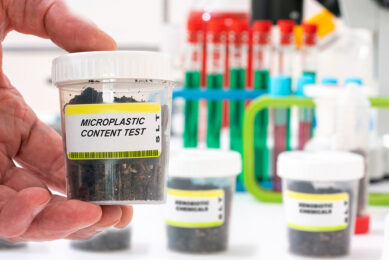Growing grain for food is more energy efficient
Using productive farmland to grow crops for food instead of fuel is more energy efficient, Michigan State University scientists concluded, after analyzing 17 years’ worth of data to help settle the food versus fuel debate.
According to Ilya Gelfand, an MSU postdoctoral researcher and lead author of the study, it is 36% more efficient to grow grain for food than for fuel.
"The ideal is to grow corn for food, then leave half the leftover stalks and leaves on the field for soil conservation and produce cellulosic ethanol with the other half."
Other studies have looked at energy efficiencies for crops over shorter time periods, but this MSU study is the first to consider energy balances of an entire cropping system over many years.
The results are published in the April 19 online issue of the journal Environmental Science & Technology.
No till performs best
The scientists compared the energy inputs and outputs of producing corn, soybeans and wheat grown using four systems: conventional tillage, no-till, low chemical input and organic, and then using all harvested plant material for either food or biofuel production.
They also looked at energy balances for growing alfalfa, an important forage plant that can be used either for biofuel or for beef cattle feed.
The analysis showed that using no-till production to grow grain for food was the most energy-efficient system for food or fuel production. Avoiding ploughing with no-till management reduces tractor fuel use during production.
Producing a kilogram of corn for human food provides more energy than converting the corn to either ethanol by processing or to meat by feeding it to animals.
Growing alfalfa for biofuel is 60% more efficient than using it as cattle feed, according to the study.











